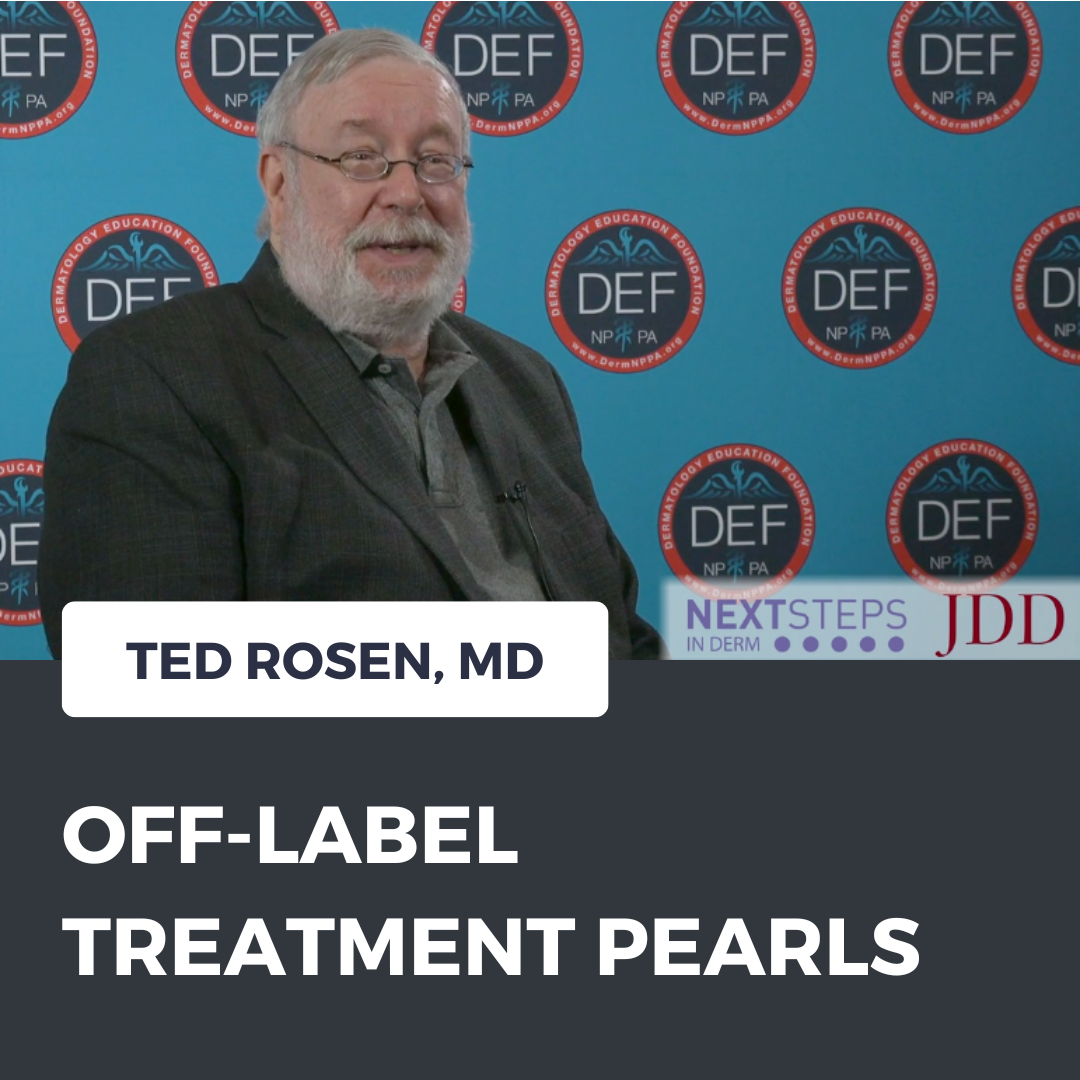Next Steps in Derm and the Journal of Drugs in Dermatology, in partnership with the Dermatology Education Foundation (DEF) and Physicians Resources, interviewed Dr. Ted Rosen (Professor, Vice-Chair of Dermatology, and Chief of Dermatology at the Houston Veterans Affairs Medical Center) on his favorite off-label treatment pearls. Watch as he shares how to use indomethacin for the angry red scrotum syndrome, methotrexate for generalized granuloma annulare, hyperthermia for molluscun contagiosum, and citrus bioflavonoid blends for the dreaded solar purpura. Can you guess which of these off-label treatments will guarantee a gift at Christmas from your patients? Watch to find out!
Dr. Ted Rosen lectured on this and other topics at the recent DERM2O22 NP/PA CME conference held July 28-31, 2022.
Further Reading
If you want to read more about treatment for the dermatologic conditions discussed in Dr. Rosen’s video, check out the following articles published in the Journal of Drugs in Dermatology:
The Treatment of Progressive Pigmented Purpura with Ascorbic Acid and a Bioflavonoid Rutoside
Abstract
Progressive pigmented purpura (PPP) is a group of dermatoses that are benign and usually self-limited. However, they may persist for months or years with frequent recurrences. Numerous treatments have been tried, but no effective therapy has yet proven to be successful. This report documents the treatment of a patient with one subtype of PPP using ascorbic acid and
a bioflavonoid rutoside given orally. A 42-year-old male with biopsy-proven Eczematoid-like Purpura of Doucas and Kapetanakis was treated with ascorbic acid 500 mg twice a day and a bioflavonoid rutoside 50 mg twice a day. Treatment was successful, with quick defervescence of the rash and no recurrence to date. Read the full case report here.
Therapeutic Approaches and Special Considerations for Treating Molluscum Contagiosum
The potential for bruising is a frequent concern for patients undergoing minimally invasive procedures, particularly injection-based soft tissue fillers and botulinum toxin type A. Decreasing the risk of this side effect with good technique and careful patient selection is key, but interventions that quicken the resolution of bruising are also helpful. Many practitioners have employed the theory of selective photothermolysis, using laser and light devices, to target hemoglobin and its breakdown products to speed time to bruise resolution. 585-595nm pulsed dye, pulsed 532nm and 1064 nm long-pulsed neodymium-doped yttrium aluminum garnet (Nd:YAG) lasers and intense pulsed light may be utilized with best results achieved when treatment is performed 1-2 days after the appearance of purpura. Specific therapy recommendations, side effects and contraindications will be addressed in this review. Read the full article here.
Generalized Granuloma Annulare in a Patient with Adult Onset Diabetes Mellitus
ABSTRACT
Granuloma annulare is a benign idiopathic disorder, which affects the dermis. Several reports have demonstrated an association between granuloma annulare and diabetes mellitus. We report the case of a 69-year-old man with an unusual presentation of generalized granuloma annulare following the diagnosis of adult onset diabetes mellitus. Read the full case report here.
Did you enjoy this video? Find more here.

